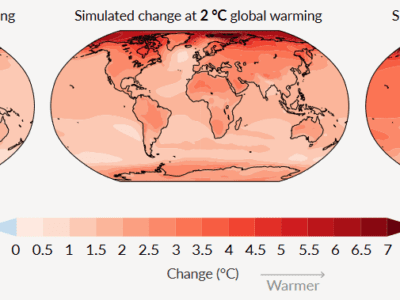Explaining Oil’s Political Clout
There’s an obvious explanation. But it’s false.
Let me start with two obvious points – only one of which is true. The first is that the oil industry has huge political influence. The second is that its clout reflects the industry’s economic heft.
The first point is definitely true. As Political Wire recently observed:
“Nearly every to top level appointment in Trump’s cabinet has ties to the oil and gas industries or is a vocal climate change denier. This includes former Gov. Rick Perry as Secretary of Energy, Scott Pruitt as EPA Administrator , Gov. Nikki Haley as U.N. Ambassador, Rep. Ryan Zinke as Secretary of Interior, Wilbur Ross as Secretary of Commerce and Sen. Jeff Sessions as Attorney General. In addition, Gen. Michael Flynn is a former oil industry lobbyist and Larry Kudlow, who is expected to be head of the Council of Economic Advisers, is a longtime climate denier and defender of Koch Industries.”
That’s real clout. Trump’s cabinet is an extreme case, but it’s been obvious for a long time that the GOP and the oil industry were joined at the hip. Just look at the last few GOP platforms and look at how much they have to say about expanding drilling and cutting regulations on the industry.
It’s the second point that’s false. The industry’s political influence far outstrips its economic heft. True, it’s a huge industry, with $220 billion in U.S. revenues in 2014 (before the bottom fell out of oil prices). Exxon, the industry leader, has a current market capitalization of $375 billion. That’s big bucks. But it’s not that big in the scheme of things. That $220 billion in revenue is just a hair over 1% of our $18 trillion economy. And Exxon’s market worth is only about 2/3 of an Apple or a Google.
So if it’s not simply wealth that accounts for oil’s exceptional clout, what is it? I’d point to three factors.
The first is motivation. Unlike companies operating in competitive markets, oil companies have enormous super-competitive profits to defend. These profits stem from two sources. First, OPEC and other producers have been moderately though not consistently successful in limiting industry output, resulting in monopoly prices globally. When Russia and OPEC recently agreed to cut production, world oil prices soared. That kind of collusion would be illegal in the U.S., but those rules don’t apply to international oil. Second, the industry receives enormous government subsidies. Putting these together, the industry has a lot of what economists call “rents” – profits that aren’t due to competitive markets – and a lot of incentive to defend those rents. Those rents also give the industry a bit pot of money to invest in PR and lobbying.
The second reason is the industry’s experience and infrastructure. The oil industry has a lot of governmental entities to contend with as it explores for oil (often on government land), drills, transports oil, refines it, and sells it to consumers. For that reason, it has decades of experience and expertise in governmental relations, something that’s hard for newer industries to match.
The third is voter sensitivity. Gasoline is something that directly impacts the lives of a huge swatch of Americans. Price is inelastic, at least in the short run, so anything that limits supply or raises costs is immediately passed on to consumers. Gas prices are highly visible and significant budget items for many consumers, so they have what behavioral economists would call high salience. No one is going to notice at 10% increase in the price of software, but a 10% increase in the cost of gasoline gets immediate attention from voters.
Taken together, these factors give the oil industry far more political influence than even its substantial economic role would justify. By the same token, cutting the industry down to size wouldn’t do the economy much harm, particularly if the industry had to give up its monopoly profits and subsidies. But it’s going to be a huge fight to get there.
Reader Comments
One Reply to “Explaining Oil’s Political Clout”
Comments are closed.







Dan said;
“…..it’s going to be a huge fight to get there…..”
Dear Dan,
Anthony St John is the only person on this forum who seems willing to fight but he is an old man and has grandchildren, so he does not have much fight left in him. Here in Texas gasoline is still less than $2/gal so we are happy and don’t want to fight.
The oil industry won the election, carbon dioxide emissions will continue to increase unabated and we all must adapt whether we want to or not. Don’t worry be happy, global warming may be a blessing for poor people. Have a good day.